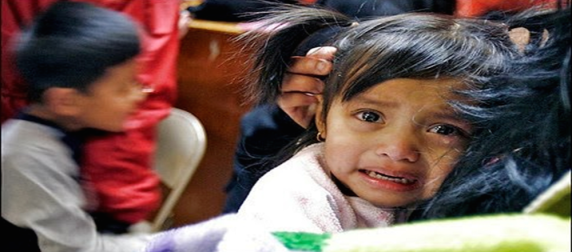Another Kind of Separation
In my work with immigrant populations, I have witnessed the tragic effects of separation, as a result of deportation, in children, parents and the community. They suffer from adjustment issues, depression, anxiety and even post-traumatic stress disorder. Deportation rips families apart, places added stress on single mothers and forces children into foster care or into the care of relatives who may not be well equipped to raise them. It also has significant effects on the community. I have noticed that the knowledge, in and of itself, that deportations are occurring in one’s community places it’s residents on edge and heightens fears about family separation. It is this heightened state of living in fear and terror that fosters mental illness. It is this fear that keeps many individuals from seeking medical attention or psychological attention. What many may not be aware of is that this fear causes the immigrant community to become isolationist. They fear authority and will avoid interaction at all costs with police and other benevolent professionals. This then creates a pocket of targets as many of these populations are attacked and are victims of robbery in their homes or places of employment.
Many dismiss this argument, saying instead that illegal aliens are depleting resources from U.S Citizens, and that it is not the responsibility of immigration policy and enforcement to worry about the children and families being affected. However, it is heard worldwide that people come to the United States to create a better life for their children, oftentimes seeking refuge from persecution, poverty and corruption.
We cannot lose the human element in the midst of political divide. Caregivers often describe children crying uncontrollably when dropped off at school or daycare in fear that they will forever loose these guardians as well. These children have grown up to have attachment issues preventing them from forming healthy relationships based on trust. How can we really help?
First of all, it is important for children and family members to say goodbye. This provides closure and an understanding of what is to come; otherwise, they are continuously holding on to the hope of reunification, hindering the progress of the grief cycle. Also, mental health counseling offered by the community and schools would greatly aid in the recovery process from such a loss. Not only in the emotional sense, but also someone to serve as a guide to help re-define and manage the economical and emotional struggles that they will face. Finally, there are community based organizations such as FOBANA, next door and Raksha that will help in finding specific resources.
We must ask ourselves if there is not a better way to take all of these events in consideration while upholding understandably controversial aspects on residency. We, as a nation, hold a deeply rooted value that children are important and must be protected, as they are the most vulnerable amongst us. Children are dependent on their guardians both physically and emotionally and have no voice in the choices made on their behalf. Joanna Dreby stated poignantly, “Certainly the deportation of people who have committed certain serious crimes and are threats to our national security will inevitably break up families. But there are ways to recognize the importance of family unification and to mitigate the devastating effects of deportation—especially for those who have committed no crimes, save for the civil penalty of being in the country without status”.
Visit http://scholarworks.lib.csusb.edu/cgi/viewcontent.cgi?article=1100&context=etd to read more about the effects of deportation and trauma.
Habiba Zaman NCC, LPC
Northstarofgeorgia.com


Comments are closed.